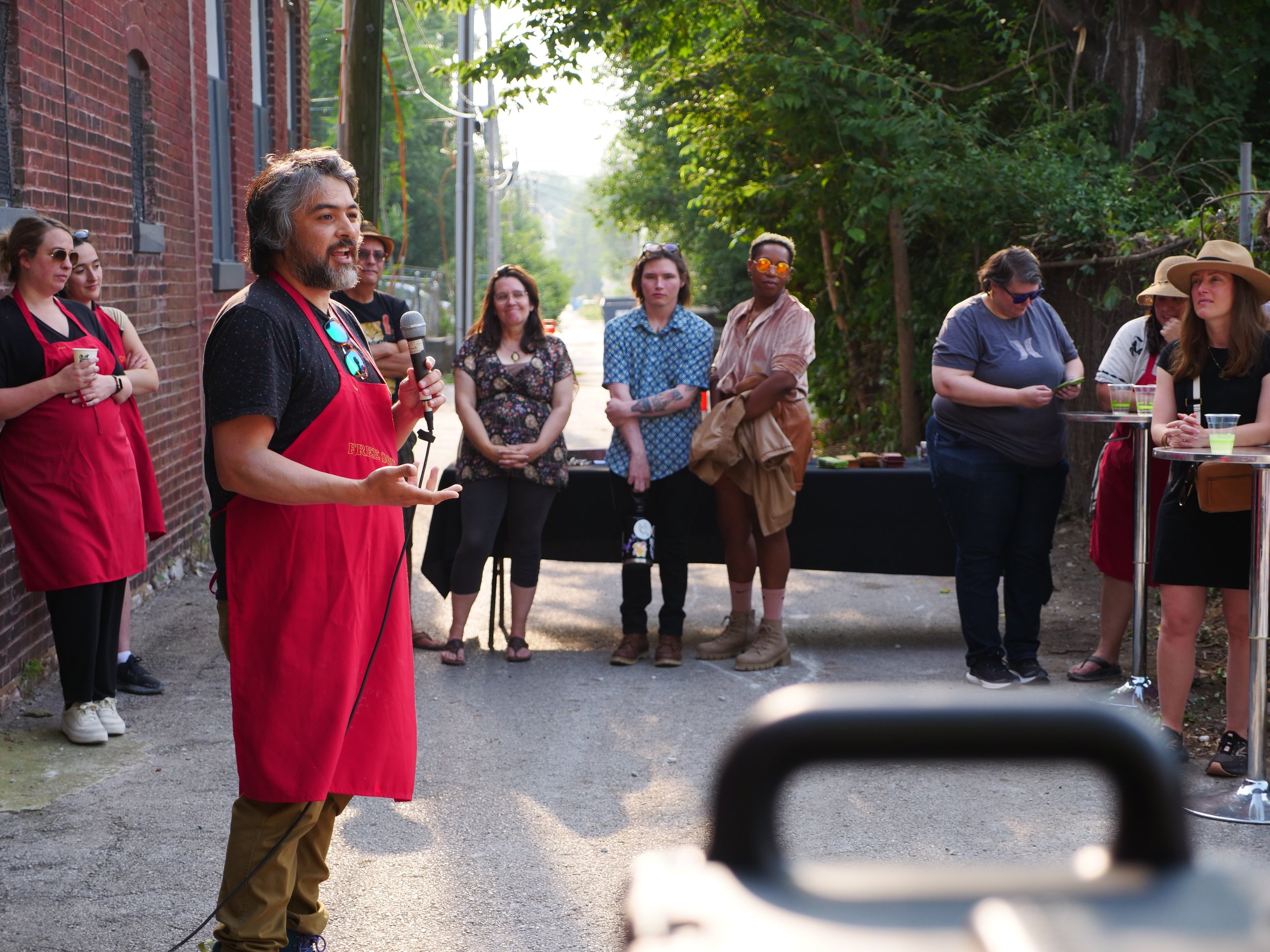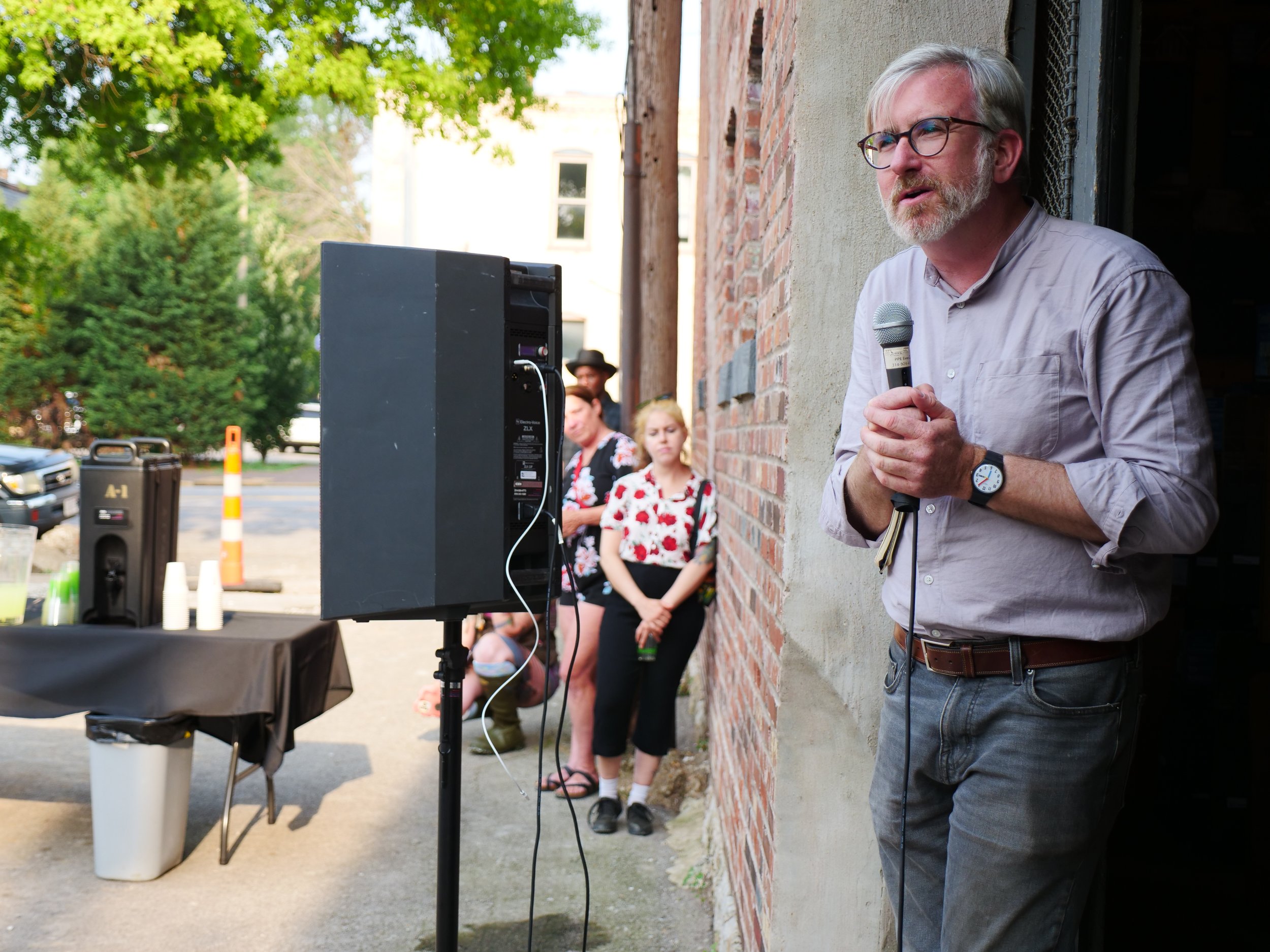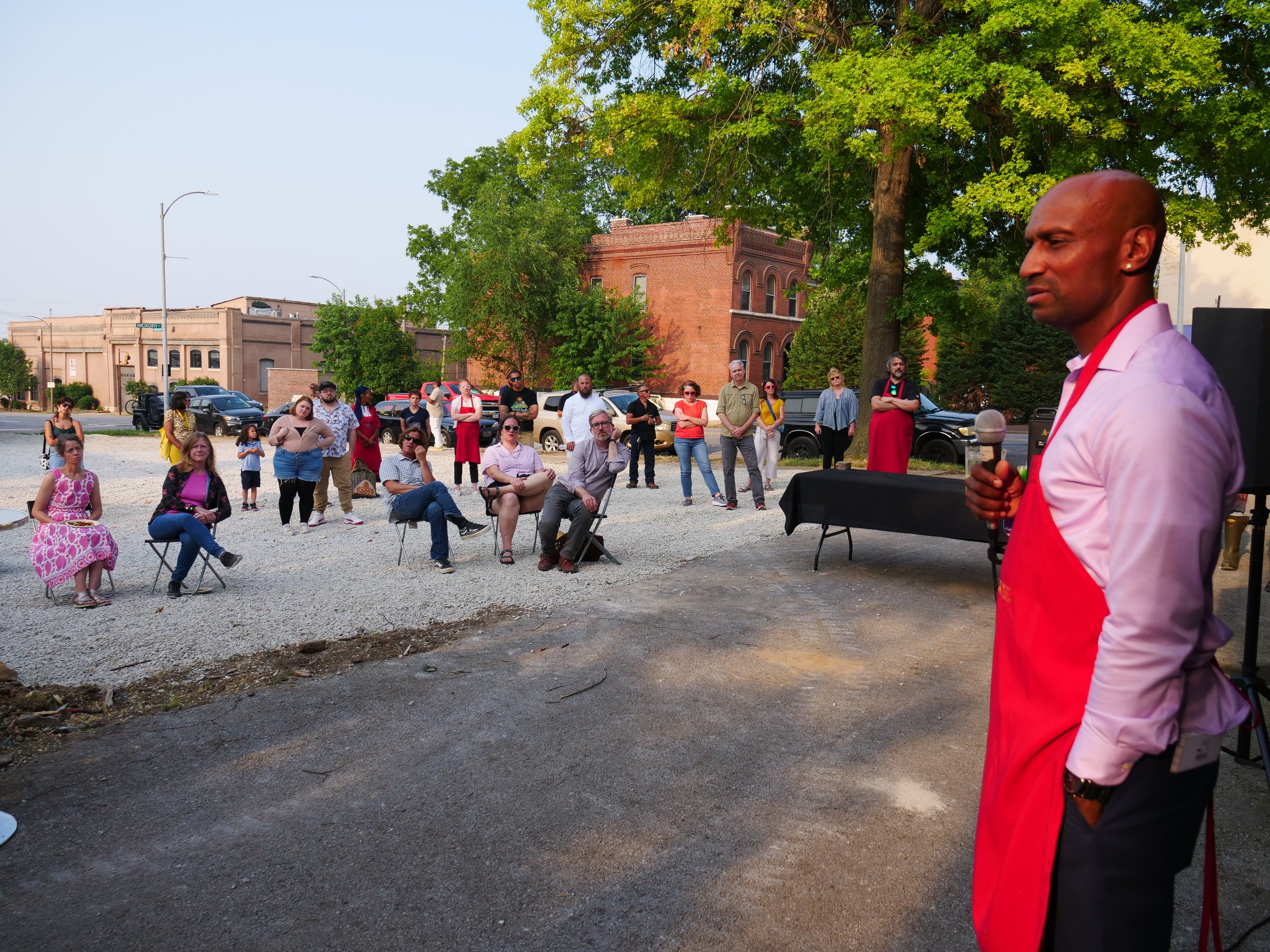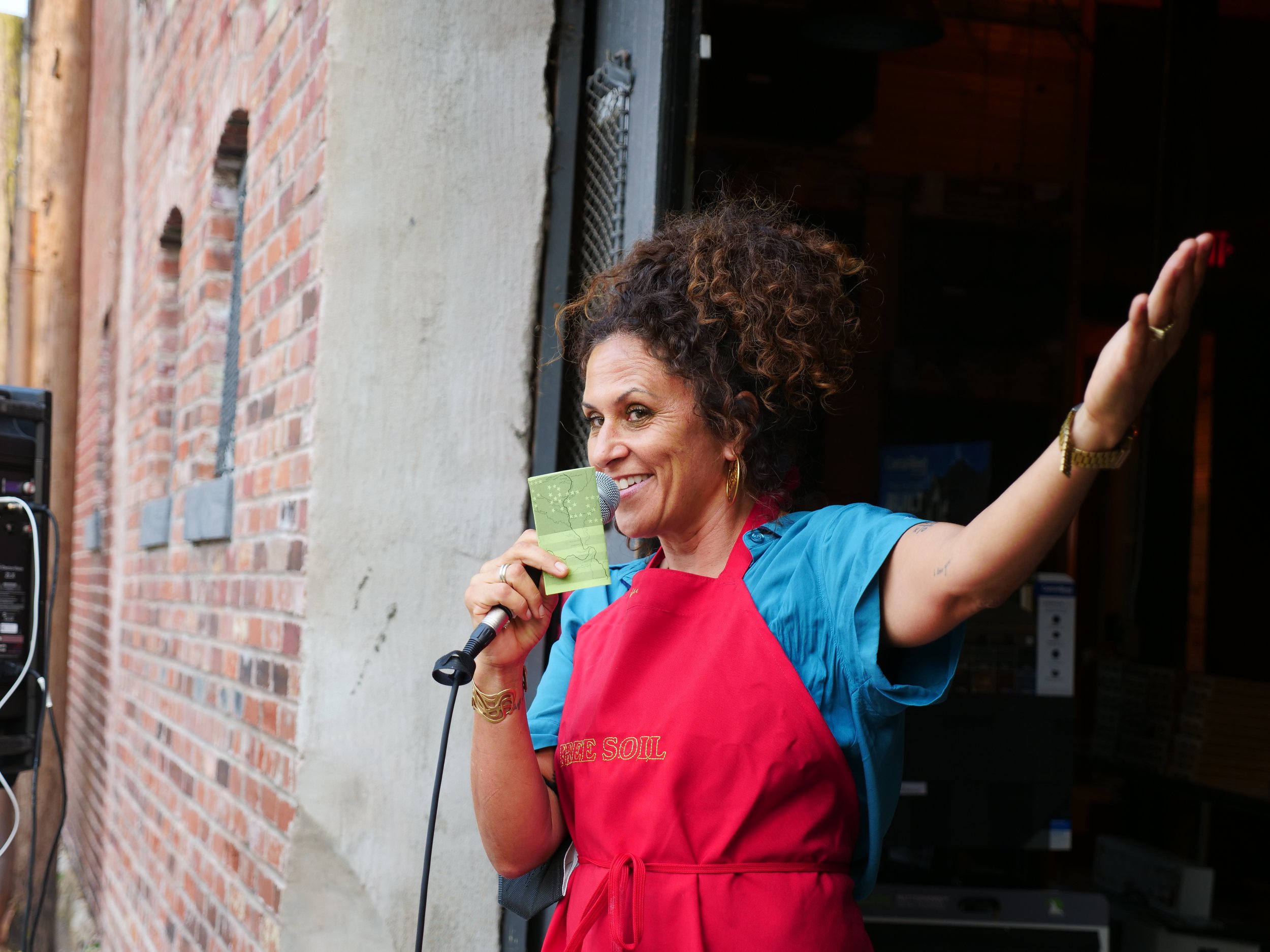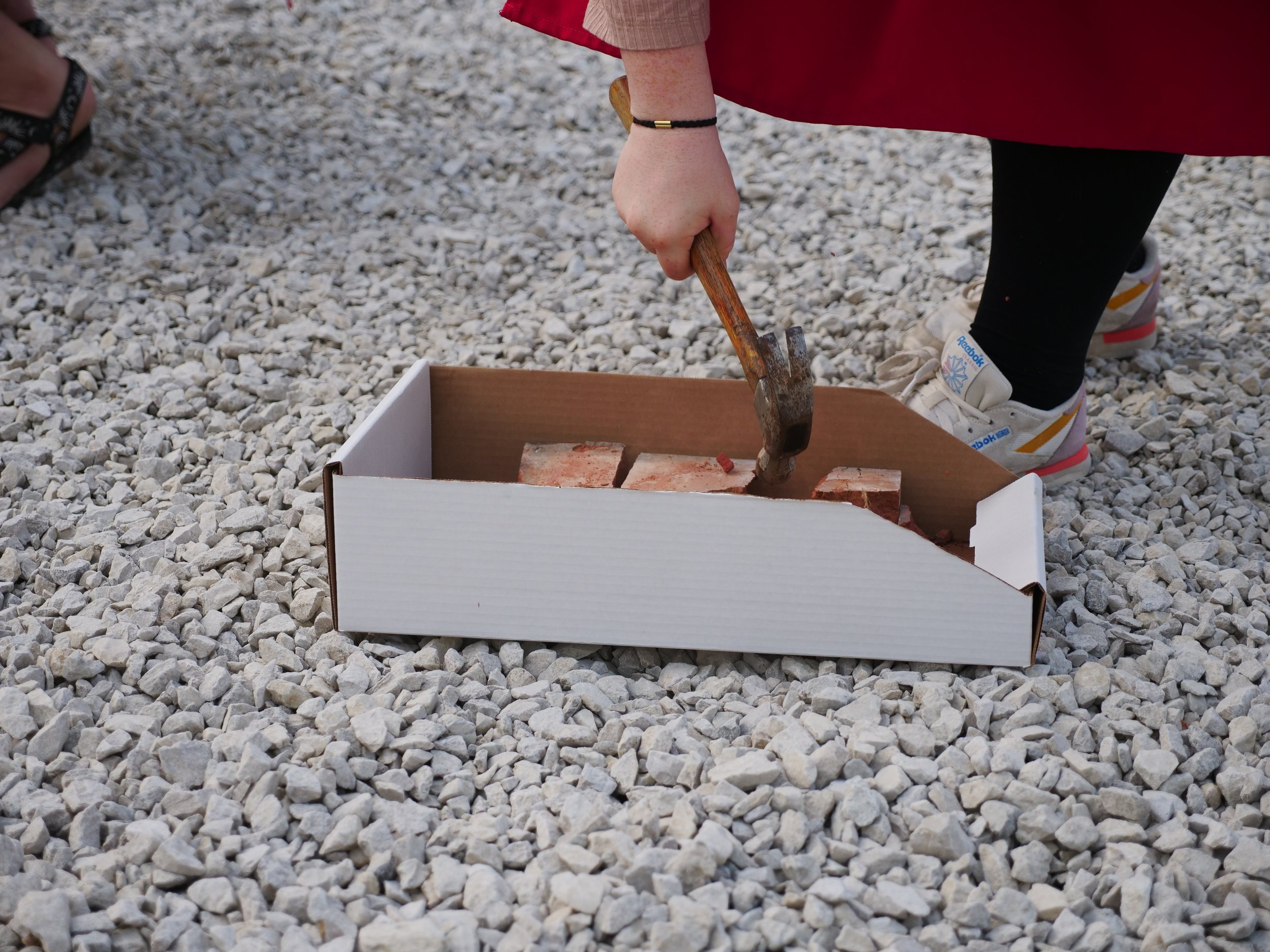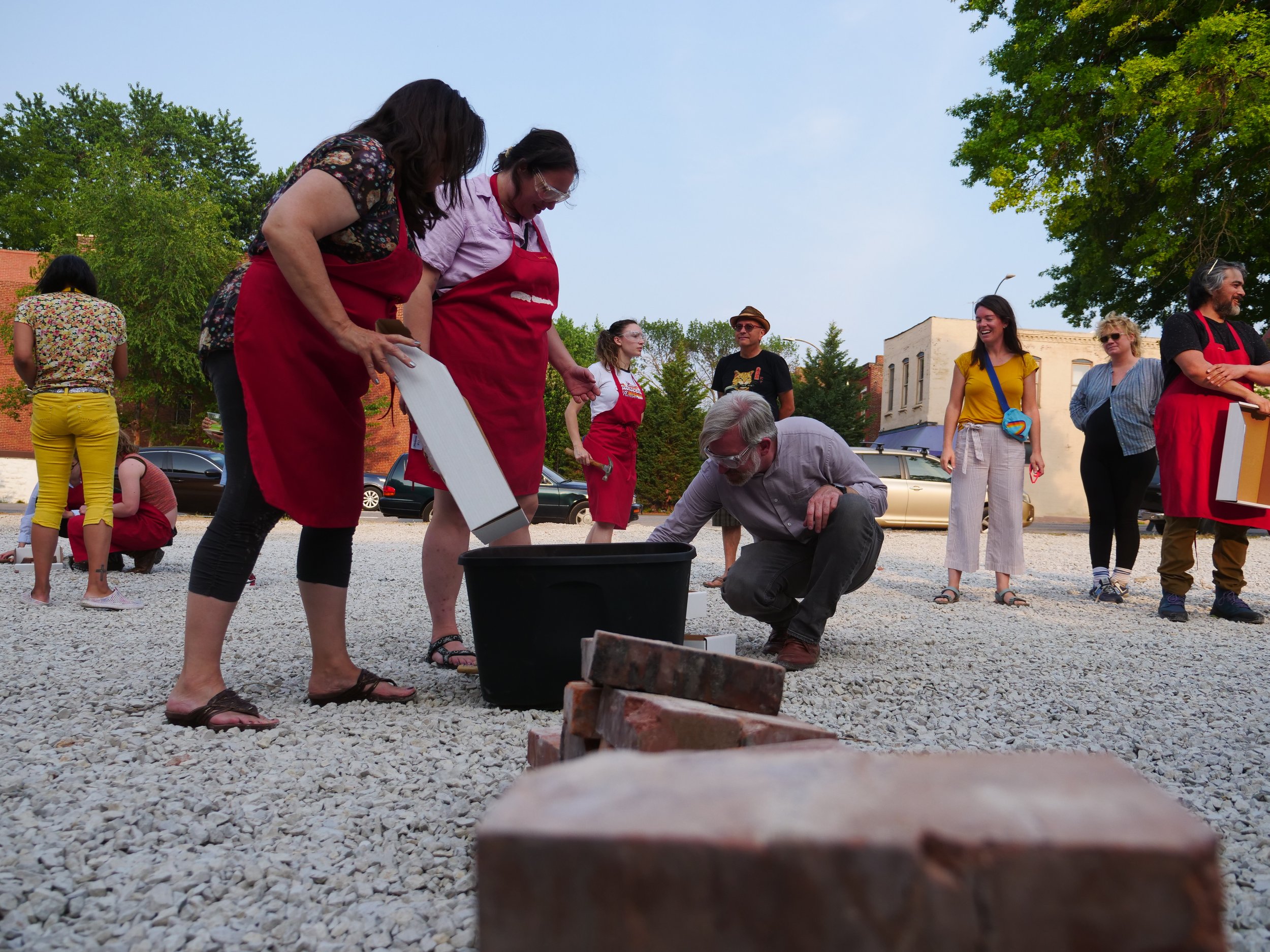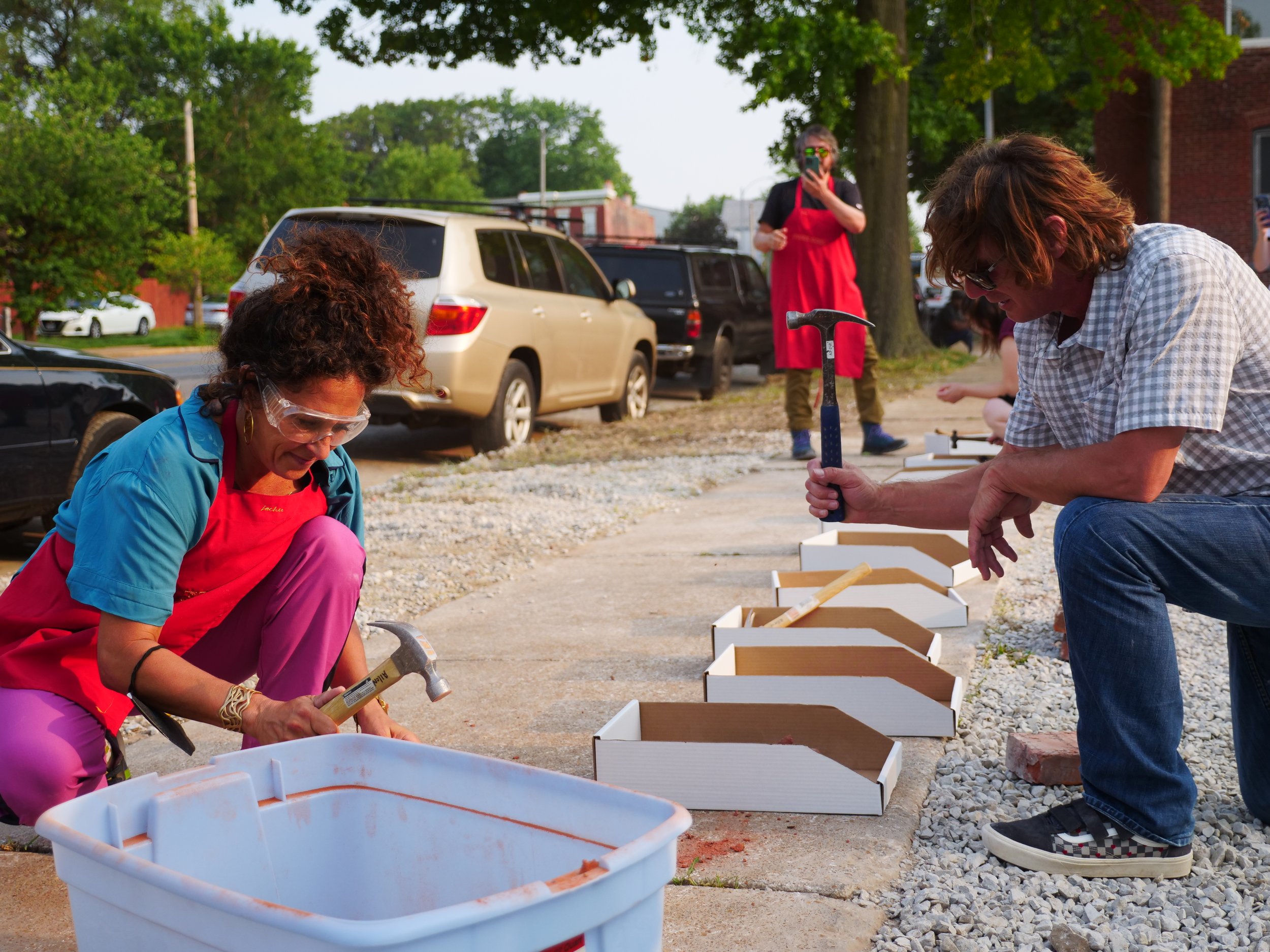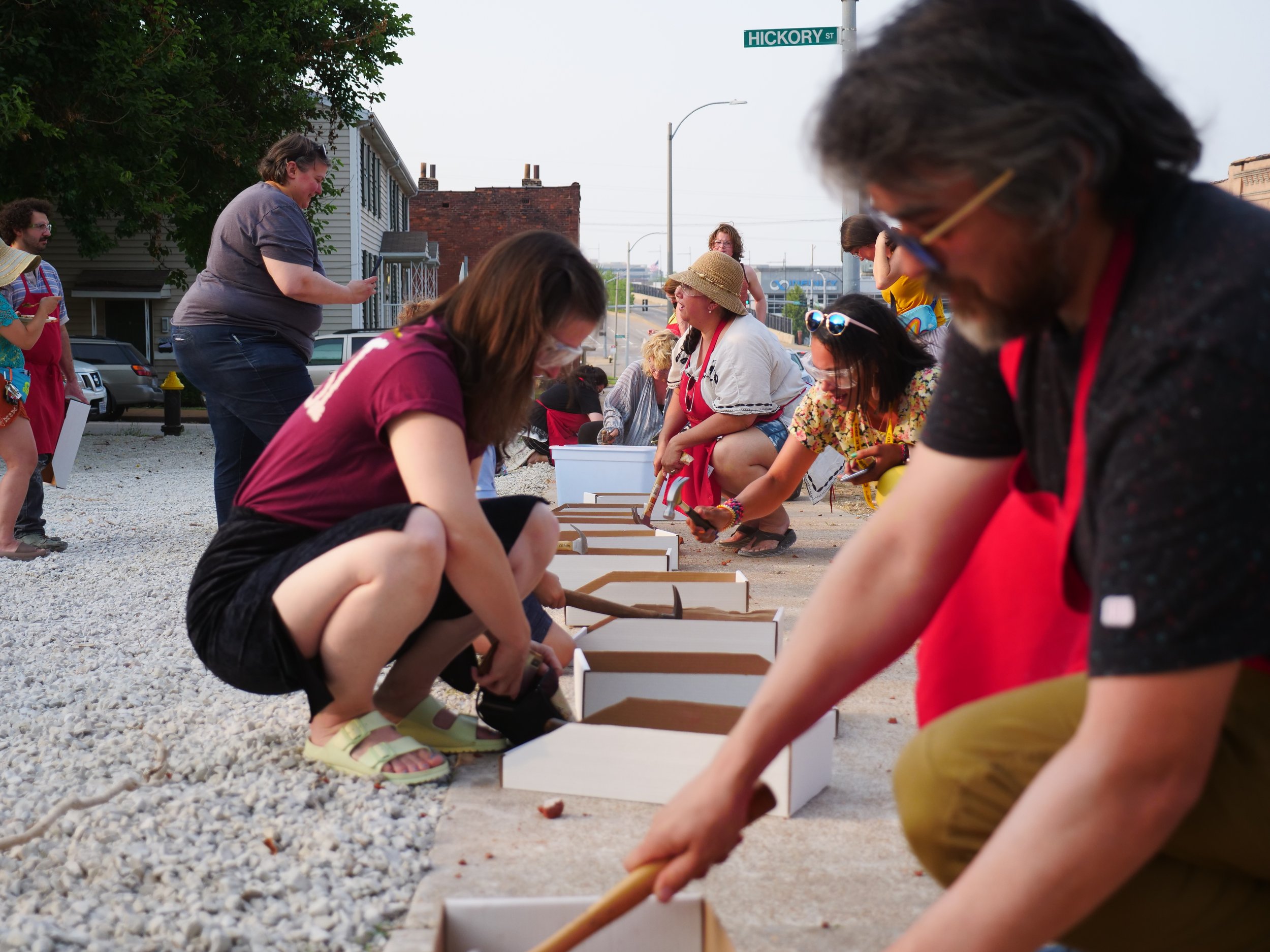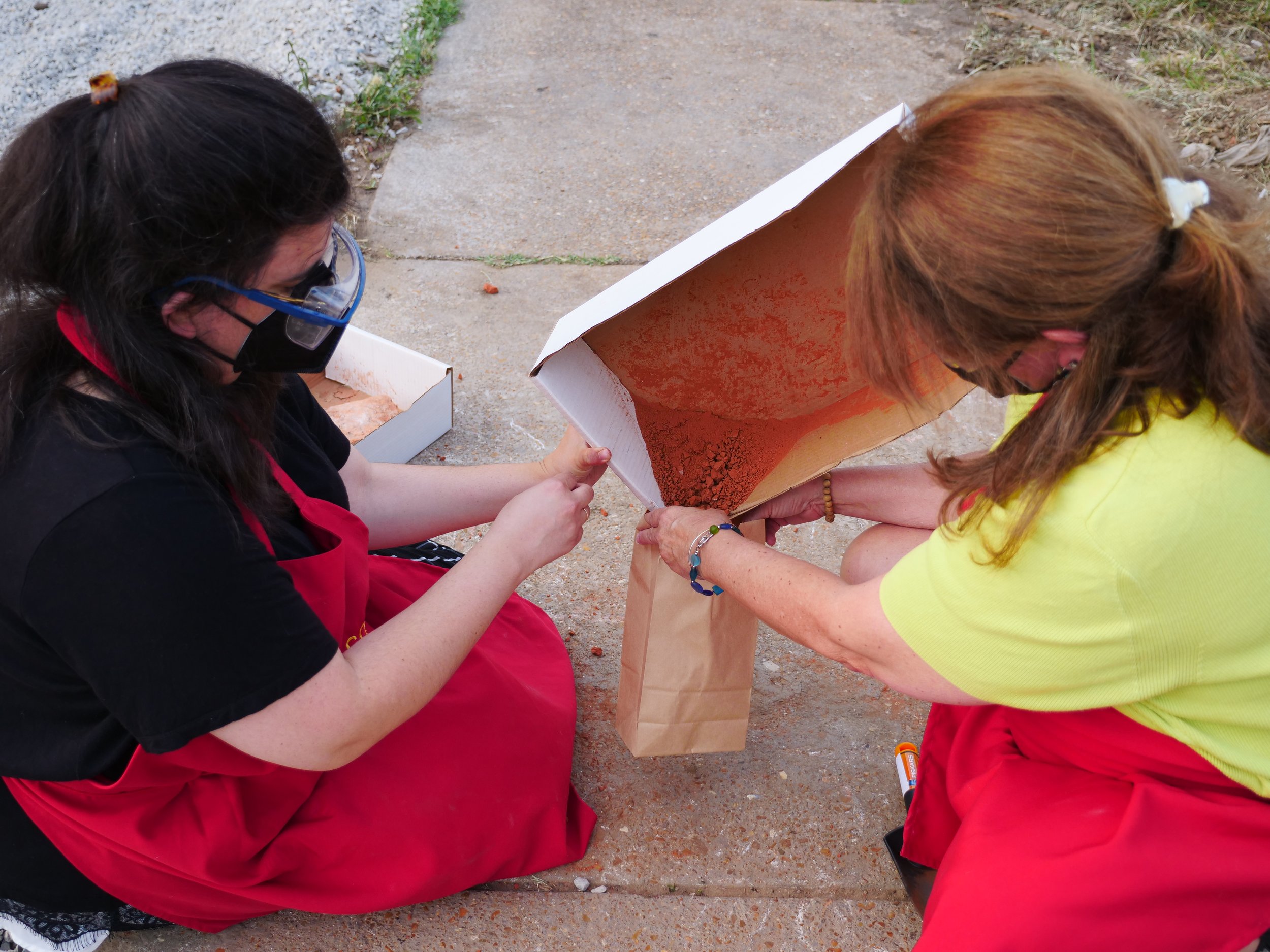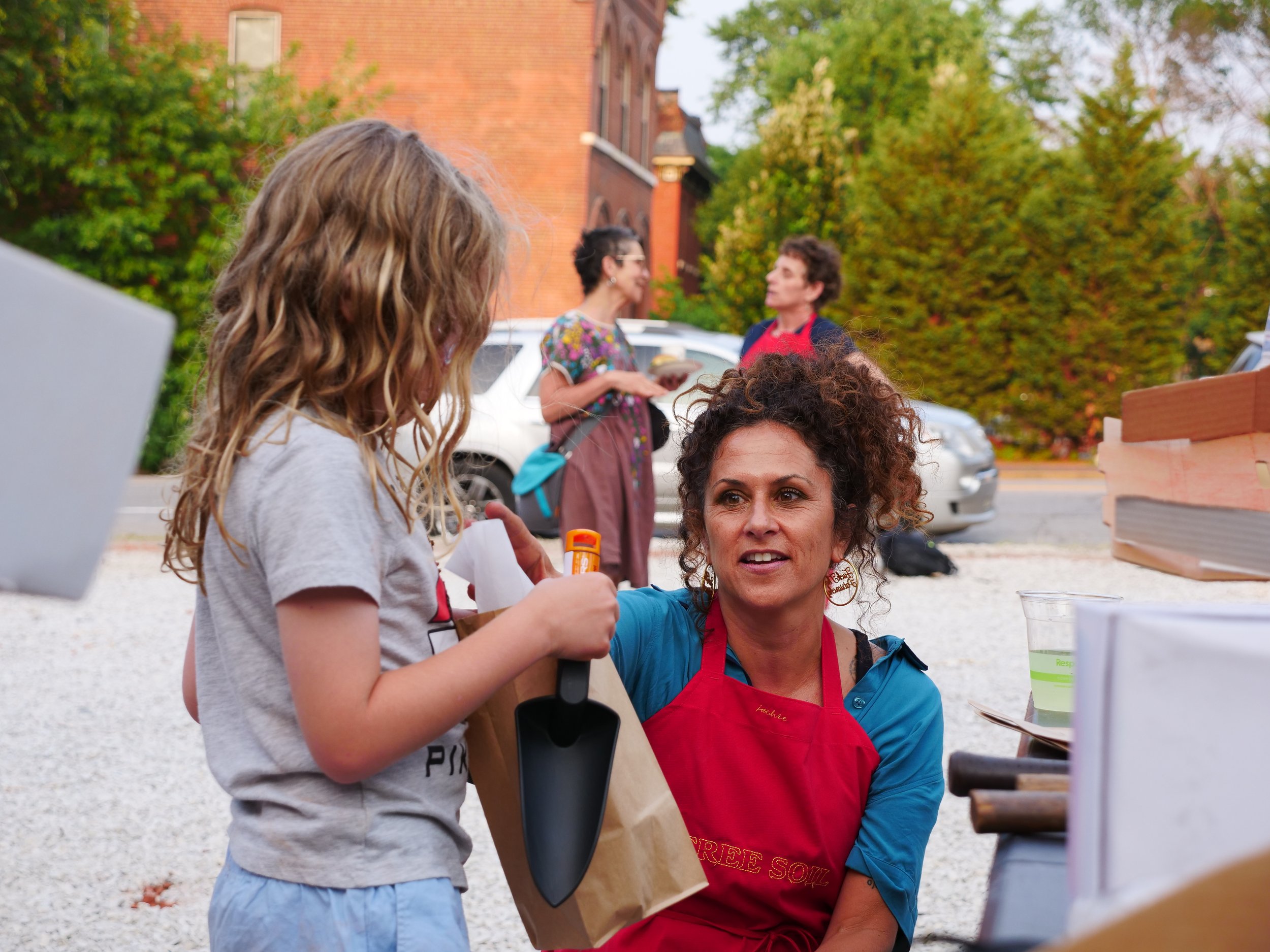jackie sumell
Site: MLK Roofing & Construction (Former site of Du-Good Chemical Laboratory)
Curator: Risa Puleo
For jackie sumell, to imagine a world without prisons is to imagine the wall-less spaces that plants inhabit. Based in New Orleans, sumell’s project in St. Louis began by thinking about the historic relationships between the two cities by following the movements of people and materials up and down the Mississippi River, including the fugitive enslaved people and freemen and women who made St. Louis their home. The bricks from these homes were removed during a period of disenfranchisement of St. Louis’s Black communities, and some were sold down the Mississippi to the wealthy residents of Baton Rouge and New Orleans to build plantation-revival-style homes. sumell returns these bricks to St. Louis in a three-part material intervention in conversation with three moments in the city’s history.
sumell’s “free soil” is a play on words and history. The Free Soil Party was a short-lived political party formed in 1848 and based in St. Louis. The party’s sole platform—that slavery should not follow settlement with westward expansion and that freemen, instead, should be given free land like all other settlers—is summarized by their motto: “Free Soil, Free Speech, Free Labor, and Free Men.” But rather than a radical promise of freedom for all, the party’s goal in abolishing slavery was to abolish the forced labor that competed with paying jobs for white men. sumell’s rematriation of the bricks is a corrective to the imperfections of an exclusionary abolitionist movement built on settler colonialism, in which to be free is to earn the right to participate in dispossession.
The first aspect of sumell’s project is a private ceremony of returning crushed bricks first, to dirt and then, to the quarries from which the clay used to make them was taken. The crushed dirt is then mixed with sand and the seeds of native pollinator plants, including echinacea, yarrow, bee balm, and goldenrod—chosen to ensure that the plants grown from sumell’s soil also help native bees thrive—to create a “free soil” that is distributed throughout the exhibition at Counterpublic 2023 information hubs.
In a further reparative gesture to the imperfections of historical abolitionist movements, sumell stages her own Free Soil Party on June 16 at Du-Good Chemical Laboratory (now MLK Roofing & Construction), the site where Lincoln Duiguid, an independent Black chemist, innovated healing medicines from plants. Unwalled and self-sustaining, the plants that grow from the seeds in sumell’s free soil at Du-Good Lab and throughout the exhibition are available to all who can make use of them.
ABOUT the artist
jackie sumell is a multidisciplinary artist and abolitionist whose work is fueled by her relationship to the natural world and gratitude for her elders. Anchored at the intersection of activism, social practice, ritual, and mindfulness for nearly two decades, she has shared this work extensively throughout the world. sumell has been the recipient of residencies, films, and fellowships including a Margarite Casey Foundation, S.O.U.R.C.E. Studio Fellowship, A Blade of Grass, Robert Rauschenberg Artist-as-Activist Fellowship, a Soros Justice Fellowship, an Eyebeam Fellowship, a Headlands Residency, and a Schloss Solitude Residency. sumell’s long-term collaboration with Herman Wallace was the subject of the Emmy Award-winning documentary Herman’s House and the driving force behind her abolition-centered practices. She is based in New Orleans, Louisiana.
ARTISTS LINKS
Instagram: @solitarygardens
Facebook: facebook.com/solitarygardens
Website: solitarygardens.org

